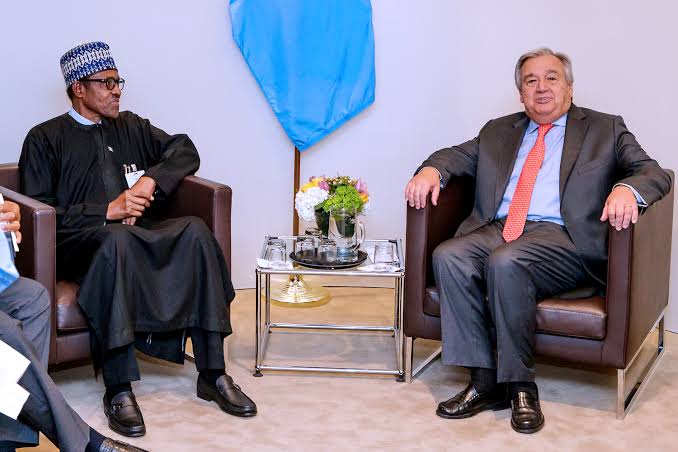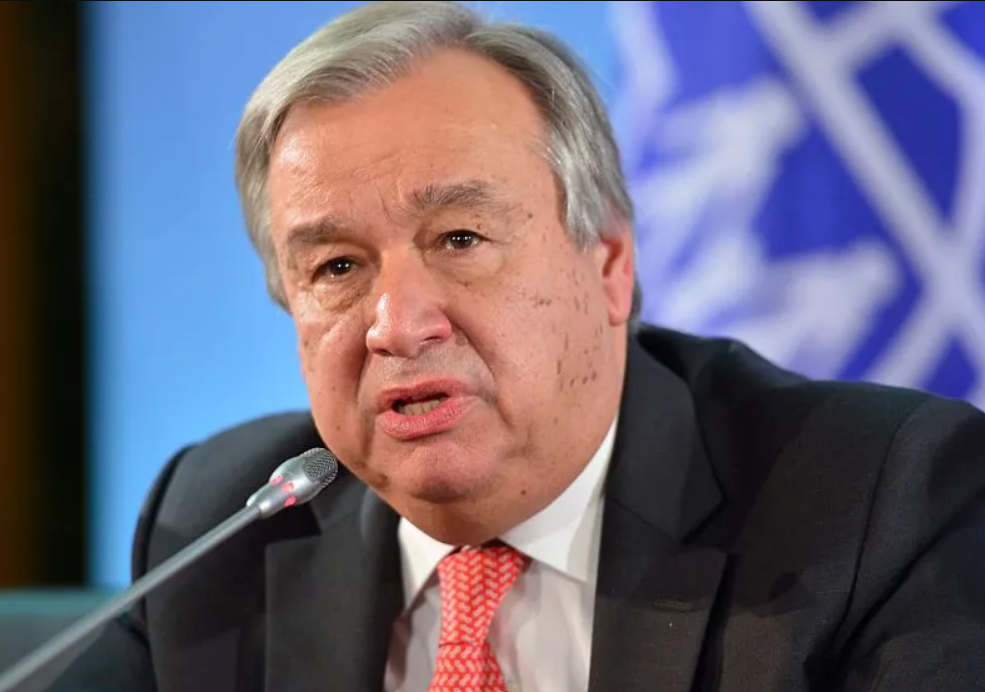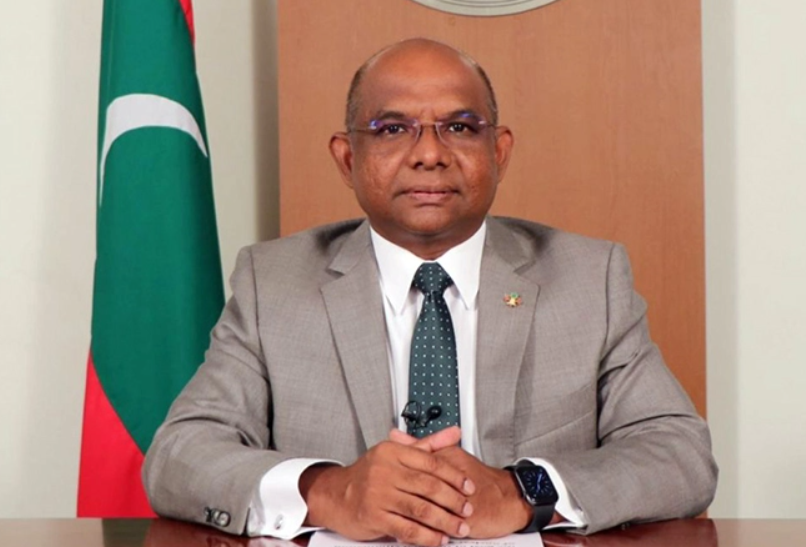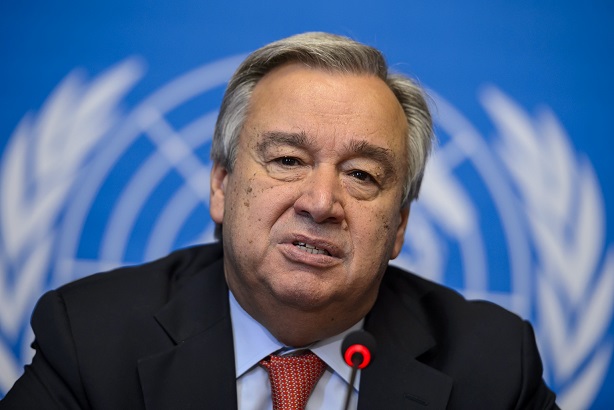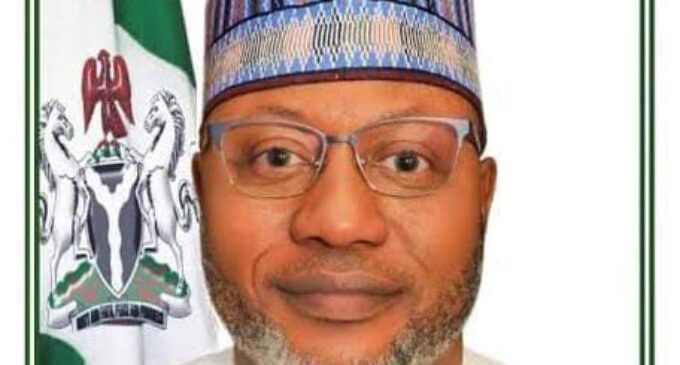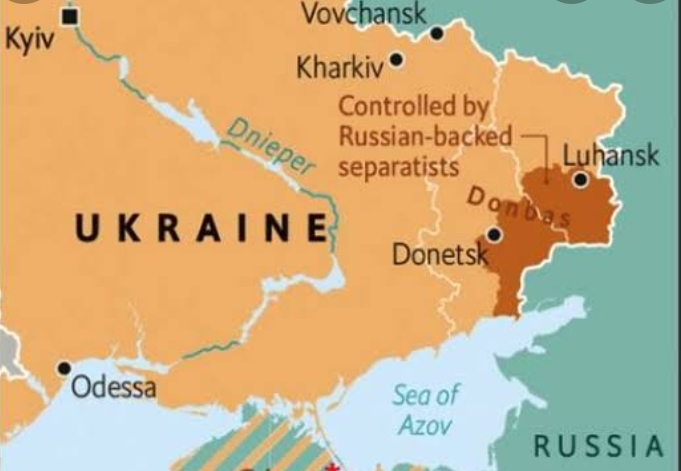The United Nations (UN) humanitarian agencies and partners on the ground in Ukraine, have arrived in the town of Sumy, in the country’s northeast on Thursday but access to the besieged and stricken city of Mariupol is yet to be reached.
UN Spokesperson, Stéphane Dujarric, while speaking with newsmen in New York, said the first convoy had arrived Sumy nearly two weeks ago, with another inter-agency relief mission reaching nearby Kharkiv, earlier this week.
“In today’s convoy, which included seven trucks, delivered food, medicines and hygiene products that will be distributed by the Ukrainian Red Cross Society and its local partners, and that will take place in the days ahead.
“This included food for nearly 6,000 people provided by the World Food Programme (WFP) and the NGO ‘People in Need;’ hygiene products for around 6,000; blankets, sleeping bags and solar lamps for more than 1,500 from the UN refugee agency, UNHCR,” he said.
He said critical medical supplies for more than 10,000 people for the next three months were also supplied by the World Health Organisation (WHO).
“We and our partners have still not been able to reach areas where people are in desperate need of support, including Mariupol, Kherson and Chernihiv, despite extensive efforts and ongoing engagement with the parties to the conflict.
“We are continuing our dialogue with both parties to the conflict with the aim of urgently, immediately and consistently negotiating and facilitating the delivery of critical humanitarian assistance to the people who have been hardest hit by this ongoing war,” Dujarric said.
The United Nations High Commissioner for Refugees (UNFPA) said it had transported 3,000 ‘dignity kits,’ containing soap, underwear and other basic items, but essential hygiene items to social service centres, shelters and crisis rooms for gender-based violence survivors, in Dnipro, Poltava and Zaporizhzhia.
The UN migration agency IOM, received a shipment of 20,000 high energy biscuits at its warehouse in Lviv, Dujarric said.
The mission will send the stock to eastern Ukraine and distribute to those most in need, targeting children and pregnant and lactating mothers in particular.
He added the UN had also “just received nearly 80 million dollars in the last few days on our humanitarian appeal for Ukraine, which puts the 1.1 billion dollar appeal at about 51 per cent funded.”
Commissioner for Refugees Filippo Grandi, appealed on Thursday “in the strongest terms” for an end to the Russian offensive, calling on the international community to provide sustained support to the millions of civilians impacted by the fighting.
“The speed of the displacement, coupled with the huge numbers of people affected, is unprecedented in Europe in recent memory.
“I have spoken with women, with children, who have been gravely affected by this war.
“Forced to flee extraordinary levels of violence, they have left behind their homes and often their families, leaving them shocked and traumatised.
“The protection and humanitarian needs are enormous and continue to grow. And while critically urgent, humanitarian aid alone cannot give them what they really need – and that is peace,” he said at the end of a visit to Lviv, in western Ukraine.
The head of gender agency UN Women, Sima Bahous, issued a strong statement on Ukraine on behalf of women and girls, warning that as they represent 90 per cent of all those fleeing their homes.
“They are uniquely exposed to gender-based specific risks such as trafficking, sexual and gender-based violence and denial of access to essential services and goods,” she noted.
She added that reports of some of these risks, “already becoming reality have begun to surface. This demands an urgent gender-intentional response to ensure the specific rights and needs of women and girls are prioritized.”
She reiterated the UN Secretary-General’s urgent call for peace: “The war must stop now.”
She added that women’s civil society organisations inside Ukraine, and in neighbouring countries, were “uniquely qualified” to help meet the needs of women and girls on the run.
“The majority of these organisations remain operational, committed to supporting Ukraine’s women and girls, increasingly at the risk of their own lives.
“Women’s organisations lie at the heart of UN Women’s response in Ukraine.
“We have directly allocated immediate funds to women’s civil society organisations, with more to follow, alongside additional funds coming through the United Nations Women, Peace and Humanitarian Fund for which UN Women is the Secretariat.”

